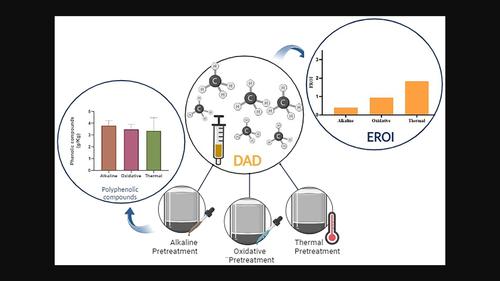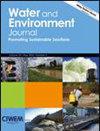Analysis of energy return on investment of dry anaerobic digestion for low water alperujo with oxidative, thermal and alkaline pretreatments
IF 1.8
4区 环境科学与生态学
Q4 ENVIRONMENTAL SCIENCES
引用次数: 0
Abstract
Anaerobic digestion processes for biogas generation using alperujo have been the subject of intensive studies suggesting that phenolic compounds act as microbial inhibitors in anaerobic digestion. Pretreatments are needed to reduce the effects of phenolic compounds and improve biogas production, especially for dry anaerobic digestion. However, industrial-scale implementation of these pretreatments is challenging, and it is unclear whether the improvement in biogas production justifies the energy expended on pretreatment. This study examines the energy analysis of dry anaerobic digestion and three alternative pretreatments: alkaline, oxidative and thermal. Results indicate that thermal pretreatment at 80°C with added water reduces phenolic compounds in alperujo by 35.4%. Meanwhile, pretreated with hydrogen peroxide in alkaline medium had the highest methane productivity (205 mL CH4/gVS). Even so, thermal pretreatment was only one with an energy return on investment greater than 1, signifying the necessity for energy analysis to ensure the viability of pretreatment processes.

采用氧化、热处理和碱性预处理的干式厌氧消化低水阿尔佩鲁霍的能源投资回报分析
大量研究表明,酚类化合物是厌氧消化过程中的微生物抑制剂。需要进行预处理来减少酚类化合物的影响,提高沼气产量,尤其是干式厌氧消化。然而,在工业规模上实施这些预处理具有挑战性,而且目前还不清楚沼气产量的提高是否证明预处理所耗费的能源是合理的。本研究对干式厌氧消化和三种替代预处理(碱性、氧化和热处理)进行了能源分析。结果表明,在 80°C 温度下加水进行热预处理可将阿尔佩鲁霍中的酚类化合物减少 35.4%。同时,在碱性介质中使用过氧化氢预处理的甲烷生产率最高(205 mL CH4/gVS)。尽管如此,只有热预处理的能源投资回报率大于 1,这表明有必要进行能源分析,以确保预处理工艺的可行性。
本文章由计算机程序翻译,如有差异,请以英文原文为准。
求助全文
约1分钟内获得全文
求助全文
来源期刊

Water and Environment Journal
环境科学-湖沼学
CiteScore
4.80
自引率
0.00%
发文量
67
审稿时长
18-36 weeks
期刊介绍:
Water and Environment Journal is an internationally recognised peer reviewed Journal for the dissemination of innovations and solutions focussed on enhancing water management best practice. Water and Environment Journal is available to over 12,000 institutions with a further 7,000 copies physically distributed to the Chartered Institution of Water and Environmental Management (CIWEM) membership, comprised of environment sector professionals based across the value chain (utilities, consultancy, technology suppliers, regulators, government and NGOs). As such, the journal provides a conduit between academics and practitioners. We therefore particularly encourage contributions focussed at the interface between academia and industry, which deliver industrially impactful applied research underpinned by scientific evidence. We are keen to attract papers on a broad range of subjects including:
-Water and wastewater treatment for agricultural, municipal and industrial applications
-Sludge treatment including processing, storage and management
-Water recycling
-Urban and stormwater management
-Integrated water management strategies
-Water infrastructure and distribution
-Climate change mitigation including management of impacts on agriculture, urban areas and infrastructure
 求助内容:
求助内容: 应助结果提醒方式:
应助结果提醒方式:


